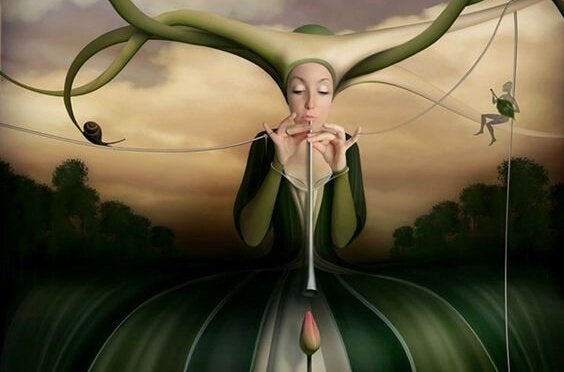There are people like that, professional commentators, minds obsessed with saying “I’m right and you’re wrong. “They are profiles with a very large ego and very little empathy, specialists in creating constant disputes, craftsmen trained to destabilize the harmony of the environment.
Wanting to get it right and showing that we’re on the right track is something that satisfies everyone, can’t be denied, it’s a self-esteem stimulant and a way to rebalance our cognitive dissonances, but most of us know there are limits. , we know that it is essential to apply constructive attitudes, a humble vision and an empathetic heart capable of appreciating and respecting the opinions of others.
“A belief is something you attach to because you think it’s true. -Deepak Chopra-
However, one of humanity’s greatest evils remains the terrible need to always be right. “My truth is the only truth and yours is not valid?” it develops the palates of many people and even of certain organs, political groups or countries that like to sell their ideals as moralizing pamphlets.
Now, far beyond looking at these facts as something isolated or curious, we must realize that this is serious, because those who are obsessed with always being right end up suffering incessant side effects: isolation and loss of health. Be able to connect with others, be sensitive, respectful and competent when creating balanced contexts.
Thich Nhat Hanh, also known as? Thay? (“Master” in Vietnamese) is a Zen master, a poet and a great peace activist. He has published more than 100 books and has been nominated for the Nobel Peace Prize by Martin Luther King.
Among the many stories that Master Thay often tells us, there is one that gives us a good example of the irreparable need that human beings have to be right. The story begins on any morning in a region of Vietnam. The 1960s and the warrior context spread to all these peaceful and serene lands marked by the routines of their people.
That day, two old fishermen were sailing upriver when suddenly they saw a boat heading towards them downstream, one of the old men wanted to row on the shore thinking that the enemy was in that boat, the other old man began to scream lifting the oar . convinced that he was a reckless and disqualified fisherman.
The two fishermen began arguing like children in the schooly field, until a few seconds later the sinking boat surprised them by throwing them into the water, the elders grabbed the floating wooden remains and discovered that the other boat was empty. Right. The real enemy was in their minds, in very obsessed minds and in eyes that no longer had the visual acuity of yesteryear.
People are real machines to believe. We internalize them and assume them as mental programs that we repeat over and over again as a rosary, until we treat them as property, as an object that must be defended with the sword. In fact, our own ego is a mosaic of diversity and diversity. With firm beliefs, many people do not hesitate to lose their friends as long as they are always right.
“You cut and comb, and you always forget to shape your ego. -Albert Einstein-
On the other hand, it is good to remember that we all have the right to have our own opinions, truths and preferences, which we have been discovering over time and which identify and define us. . However, beware, because none of these dimensions should hijack us. to the point of being thrown into this dungeon of “my truth is the only truth that matters. “
There are those who live immersed in an inner dialogue that, in the form of a mantra, repeats all the time that their beliefs are the best, that their concentration is immovable and that their truth is a lamp of inviolable wisdom. Thinking like this throws them through life in search of people and situations that validate their beliefs, and “truths. “of these atomic and restricted worlds where nothing should be questioned.
The consequences of living with this type of mental focus are often severe and almost irreparable.
The world is not black and white. Life and people find their maximum beauty and expression in diversity, in different opinions, in different perspectives of thought to which they are always receptive to learning, growing and moving forward.
“The best gift we can give to someone else is our attention. ?Thich Nhat Hanh-
To cling to one thought and impose a universal truth is to go against the essence of humanity, and even the very exercise of individual freedom. It’s not legal, it doesn’t make sense, it’s not healthy. James C. Coyne, a writer, psychologist and professor emeritus at the University of Pennsylvania School of Psychiatry, says the need to always be right is a modern evil that can affect our physical and emotional health.
According to a survey conducted at the University of Bradford in the United Kingdom, about 60% of people with this profile suffer from ulcers, high levels of stress and dysfunctional relationships with the family. In addition, and if that were not the case, these are people who change the living environment around their place of travel.
In conclusion, one thing we all know is that our daily life is like a stream where several complex currents cross, we all go on our own boats, either upriver or downriver, instead of always obsessing over maintaining the same direction, we must learn to elevate our vision so as not to collide.
We must give in, create a sea of spirits capable of connecting with each other to flow freely and in harmony, in the end we all seek the same destiny, which is nothing more than happiness, so let us build this destiny using respect, empathy and a true sense of coexistence.
Images courtesy of Logan Zillmer.

